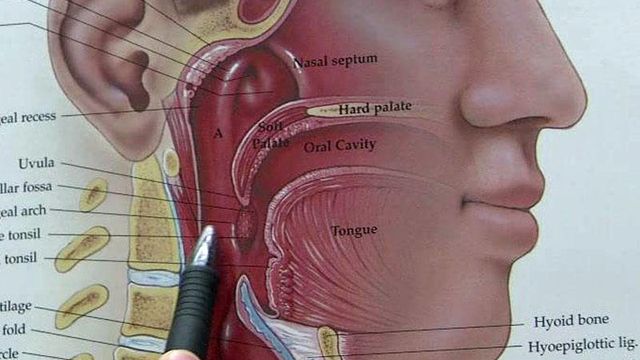Snoring problems? Try these solutions
When it's time for sleep, the rumbling roar of snoring can be heard in many households. About half of the population has the problem to some extent, and about 80 percent of those who snore disrupt their partners' sleep.
Posted — UpdatedJohn Gurley says it wasn’t his idea to see WakeMed ear, nose and throat physician Dr. Allen Marshall for a snoring problem.
“Probably about four months ago, I think, my wife had finally got to her wits end. She got her sister involved and they both kind of ganged up on me,” he said.
The root cause of snoring is an obstruction of the free flow of air through the mouth or the nose or the throat. An examination involves looking for obstructions, using a fiberoptic scope through the nose and into the problem area.
Snoring often is caused by a collapse of tissue, blocking the back of the throat, the tongue and palate. It can be caused by excess weight around the neck and enlarged tonsils.
Gurley's exam led to an overnight sleep study.
“They found out from the breathing studies that I stopped breathing about 15 times every hour (and have sleep apnea),” he said.
As a result, the oxygen levels in the body drop and the heart works extra hard to bring oxygen to the brain, according to Marshall.
Untreated, the long term impact could be hypertension and heart disease, not to mention daily drowsiness due to restless sleep.
Gurley wanted a drug-free, surgery-free solution, which is C-Pap. He chose a mask covering his nose and mouth hooked up to a pump, which increases the flow of moist oxygen opening his airways.
“So far, I've done good. My wife says I've done good with it,” Gurley said.
For some people, simply losing a significant amount of weight can cure the problem. There are also special mouth inserts, either bought over the counter or fitted by a doctor or dentist, that force the jaw forward, opening the airway.
Surgery to open a collapsed or broken nasal passage may be the answer. There are also surgical options to stiffen the soft palette, which may help.
• Credits
Copyright 2024 by Capitol Broadcasting Company. All rights reserved. This material may not be published, broadcast, rewritten or redistributed.





